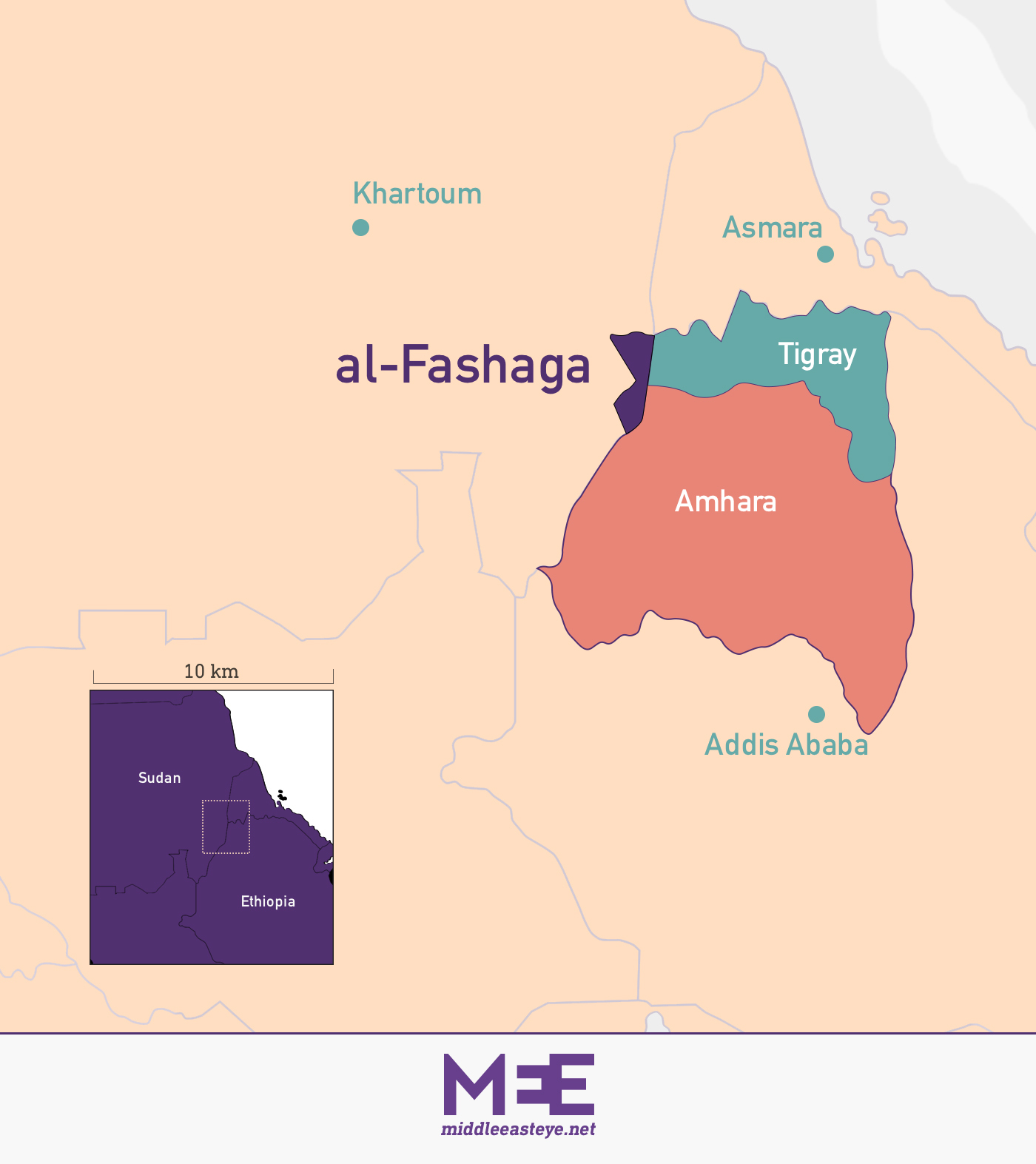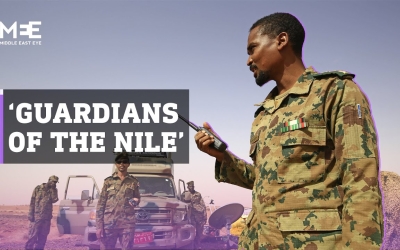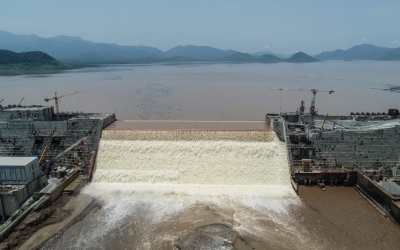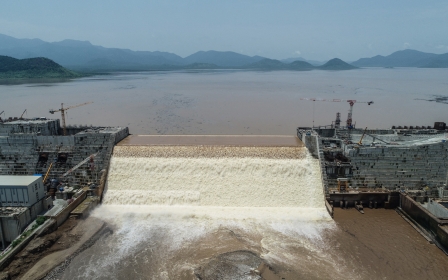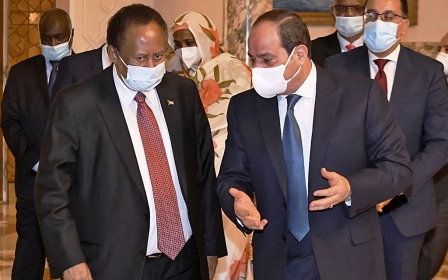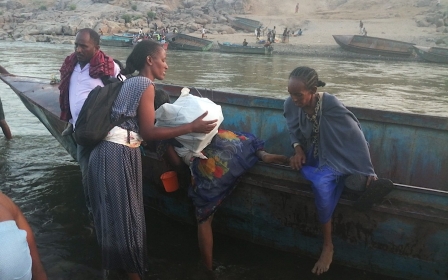Sudan and Ethiopia’s dispute in fertile border area threatens regional stability
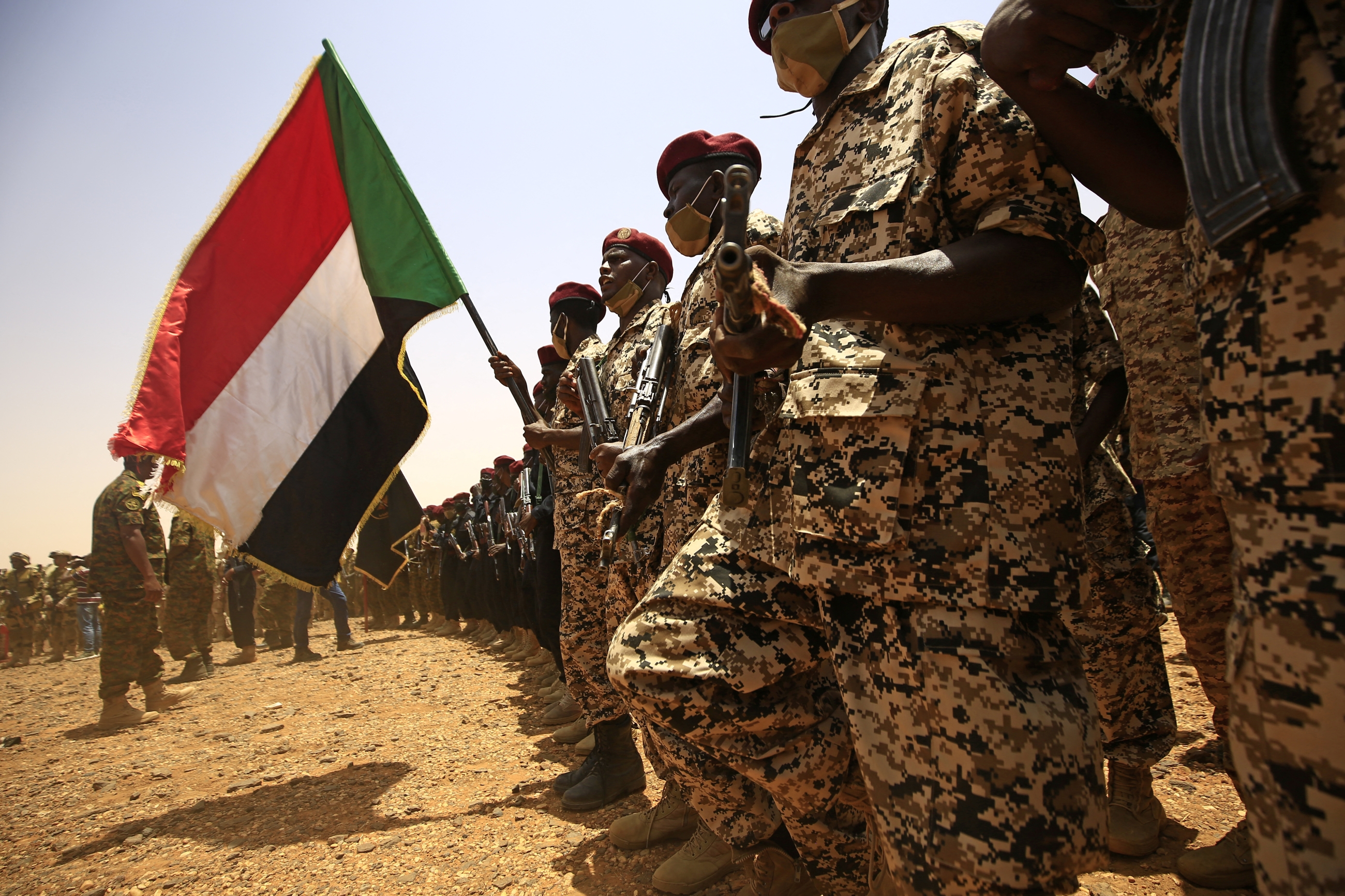
A more than a century-old dispute between Sudan and Ethiopia over the Sudanese border region of al-Fashaga had been lying relatively dormant for more than a decade, with farmers from both sides coexisting in the area.
But a recent takeover by Sudanese troops has disrupted a delicate understanding governing the area, occupied by Ethiopian forces, putting the region under threat of a wider conflict.
The Sudanese army in mid-December moved into al-Fashaga, after 25 years of absence, after Ethiopian soldiers and Amhara militiamen in al-Fashaga were deployed to support Ethiopia’s war efforts in the Tigray region against the Tigray People’s Liberation Front (TPLF).
The move has ignored the shaky status-quo afforded by an agreement signed in 2007 that allows Sudanese and Ethiopian farmers to work on the highly fertile agricultural land, which borders the Ethiopian regions of Tigray and Amhara and was occupied by Ethiopia in 1995.
Following its capture of al-Fashaga, the Sudanese army has evicted thousands of Ethiopian farmers, the majority of whom come from the Amhara region.
Sudanese, Ethiopian (including Amhara militias), and Eritrean armed forces have deployed in and around al-Fashaga in recent months, and clashes have claimed dozens of combatant and civilian lives since December.
The escalation in al-Fashaga has raised the alarm about the dispute erupting into a wider border conflict, with tensions rising between Egypt, Sudan and Ethiopia over the latter's construction of the Grand Ethiopian Renaissance Dam (GERD) on the Blue Nile.
Cairo fears the dam will imperil its supplies of Nile water, while Khartoum is concerned about its safety and water flows through its own dams and water stations.
In late May, Sudan and Egypt - whose government has threatened Ethiopia with military action over the dam - held a joint military drill.
The International Crisis Group (ICG) has warned that the current tension over al-Fashaga threatens regional stability and that a wider conflict could draw Sudan's ally Egypt, and Eritrea, in favour of Addis Ababa.
International actors, including Saudi Arabia, Turkey, Russia and the United Arab Emirates (UAE), have offered to mediate between Sudan and Ethiopia. Diplomatic efforts have so far failed, with a recent initiative by the UAE rejected by both sides.
Historical disputes
Al-Fashaga, a land spanning over one million acres, sits between the eastern bank of the Atbara river and the western bank of the Salami river, known as the Tekeze river in Ethiopia.
The region, which was declared as Sudanese in a 1902 agreement between Ethiopian emperor Menelik II and Sudan’s British colonial authorities, has long witnessed disputes and battles between the two countries, especially among farmers.
'After my son was killed, I felt justice for the first time when I saw the Sudanese flag flying on the eastern side of the river'
- Ibrahim Abu Digin, Sudanese farmer
Ethiopian troops and farmers moved into the area in the mid-1990s while Sudan was preoccupied with several domestic wars. The Sudanese army withdrew from Fashaga, as well as from Halaybe near the border with Egypt, in 1995.
Analysts and citizens from al-Fashaga believe that Ethiopia and Egypt had ramped up pressure on then-president Omar al-Bashir, due to his involvement, along with the Egyptian Islamic Jihad, in the 1995 failed assassination attempt against former Egyptian president, Hosni Mubarak.
For Adam Omran, 40, the withdrawal of the Sudanese army changed the balance of power in favour of the Amhara militias, known by Sudanese as Shifta, which then seized control over the majority of the fertile lands.
“The Shifta militia didn’t just control the fertile lands on the eastern side of the Atbara and Salami rivers but it also crossed the borders to control part of the lands on the western bank of the rivers,” Omran told Middle East Eye.
“This land grab intensified post 1995, when the Sudanese army withdrew and left us alone without protection.”
Ibrahim Abu Digin, a 65-year-old farmer from Sifawa village in al-Fashaga, said that Ethiopian militias, local to the Amhara border region, killed his son in front of his very eyes when they attacked their house 30 years ago.
He said the dispute was over a piece of land that he owned and Ethiopian farmers had tried to seize it.
“After my son was killed, I felt justice for the first time when I saw the Sudanese flag flying on the eastern side of the river,” he said.
Escalation
According to eyewitnesses from Barkat Nourain village in al-Fashaga, the tension and clashes between the Amhara militia and local armed Sudanese men had been taking place since May 2020, before escalating into battles between the Sudanese and Ethiopian armies later that year.
According to Ahmed Musa, a Sudanese resident of Barkat Nourain village, Ethiopian militias had started attacking civilians in the village and other nearby villages, including Wad Arood, where they killed six girls while they were farming in the field. Sporadic attacks continued until the Sudanese army crossed the eastern bank of Atbara.
“Intense battles have been taking place between the Ethiopian and Sudanese troops in the border area, where Sudan has succeeded in capturing the majority of localities of Lesser and Greater al-Fashaga and expelling the majority of the Amhara militia,” he said.
A military source told MEE that the Sudanese army launched its redeployment into al-Fashaga in May 2020, but only started to take control of the lands after the withdrawal of the majority of the Ethiopian militias when they were summoned to participate in the Tigray war.
“The Sudanese army has seized the strategic area of Abu Toyor mountain, which has given us the upper hand over the western bank of the Atbara river,” the source said, under condition of anonymity.
“But we did not stop there, we’ve also gained control of the entire western bank and crossed the river into the eastern side.”
However, Mohammed Mahmoud, a farmer in the same area, said that despite the new presence of Sudanese troops, he has not been able to work on his farmland on the eastern side of the river since 1995.
“I have nearly 3,000 acres of land on the eastern bank of the Atbara river, but I still can't farm it because we are afraid of possible attacks by the militias,” he said.
“We were told by our army to wait until they can clear the area.”
One source in al-Fashaga said that Sudanese tribes living on the border have started arming themselves for protection and possible confrontation with the Ethiopian militias.
In late May, suspected Ethiopian militias killed at least one Sudanese army officer and a child in a cross-border attack on Barakat Nourain in Gadaref. Three civilians and a Sudanese officer were wounded, according to Sudan’s military.
Forgotten land
Despite the fertility of al-Fashaga’s land, the area is poor and marginalised. The neglect is clearly demonstrated in the lack of services and basic infrastructure, including roads, electricity and water networks.
A leading member of al-Fashaga's local land committee, Osman Adam, commended the army’s efforts, but he also called for the return of the land to its owners.
“We are in a very transitional period in al-Fashaga in terms of land ownership, so the army has to immediately return the lands back to their original owners after their liberation from Ethiopian occupiers,” he said.
'I have nearly 3,000 acres of land on the eastern bank of the Atbara river, but I still can't farm it because we are afraid of possible attacks by the militias'
- Mohammed Mahmoud, Sudanese farmer
After occupying most of the region in late March, the Sudanese army started building roads and bridges that connect Atbara’s banks in preparation for the rainy season, which typically begins around June, and said it intends to invest in the land soon.
Al-Rasheed Abdul Gadir, coordinator of the border development committee in Gadaref State, told MEE that the only thing left to do is to define border lines, accusing the Ethiopian side of intentionally hindering the process.
Gadir said that the 1902 agreement and the agreements between the two countries signed in 1972 have laid out a clear roadmap to the demarcation of the 260-kilometre border between them, especially in this area.
But a recent report by the ICG says that local dynamics have repeatedly impeded efforts to settle the border dispute.
“In the decades that followed the 1902 treaty, demarcation and management remained bones of contention between Addis Ababa and Khartoum, primarily because of local jockeying for political power and control of the region’s economic resources,” the report said.
There were several attempts to resolve the boundary dispute over the years, but it wasn’t until 2007 that a shared-land agreement, whereby Sudanese and Ethiopian farmers could cultivate the land and conduct trade, was reached. The agreement, according to the ICG, minimised the urgency of border demarcation and thousands of Ethiopians crossed into al-Fashaga daily as labourers.
The UAE initiative
Sudanese and Ethiopian officials met in Abu Dhabi in April, with the UAE offering to invest in al-Fashaga to provide a peaceful solution and promote coexistence in the region, a Sudanese official told MEE.
But the proposal put forth by the Emiratis, which would have divided the land between Ethiopia, Sudan and the UAE, was rejected by both Addis Ababa and Khartoum.
The Sudanese official, who spoke on condition of anonymity, confirmed that the initiative included the allocation of 25 percent of the land to Sudanese farmers, 25 percent to Ethiopian farmers, and the remaining 50 percent would be leased to an Emirati agricultural company for 99 years.
The proposal was also widely opposed by local Sudanese communities, political parties, and grassroots protesters of resistance committees.
Adam of the local land committee said that they reject all investment ambitions on their land, whether it was from Ethiopia, the UAE or any other countries.
“The conflict of interests between these different countries has taken on a regional dimension, but we have nothing to do with all of that. We will defend our lands regardless of the nationality of the invaders,” he added.
The ICG said that the initiative also failed to consider the farming interests of the Sudanese Armed Forces, large-scale private landholders, and smallholders who were forced to abandon their land by Ethiopian paramilitaries.
Middle East Eye propose une couverture et une analyse indépendantes et incomparables du Moyen-Orient, de l’Afrique du Nord et d’autres régions du monde. Pour en savoir plus sur la reprise de ce contenu et les frais qui s’appliquent, veuillez remplir ce formulaire [en anglais]. Pour en savoir plus sur MEE, cliquez ici [en anglais].


